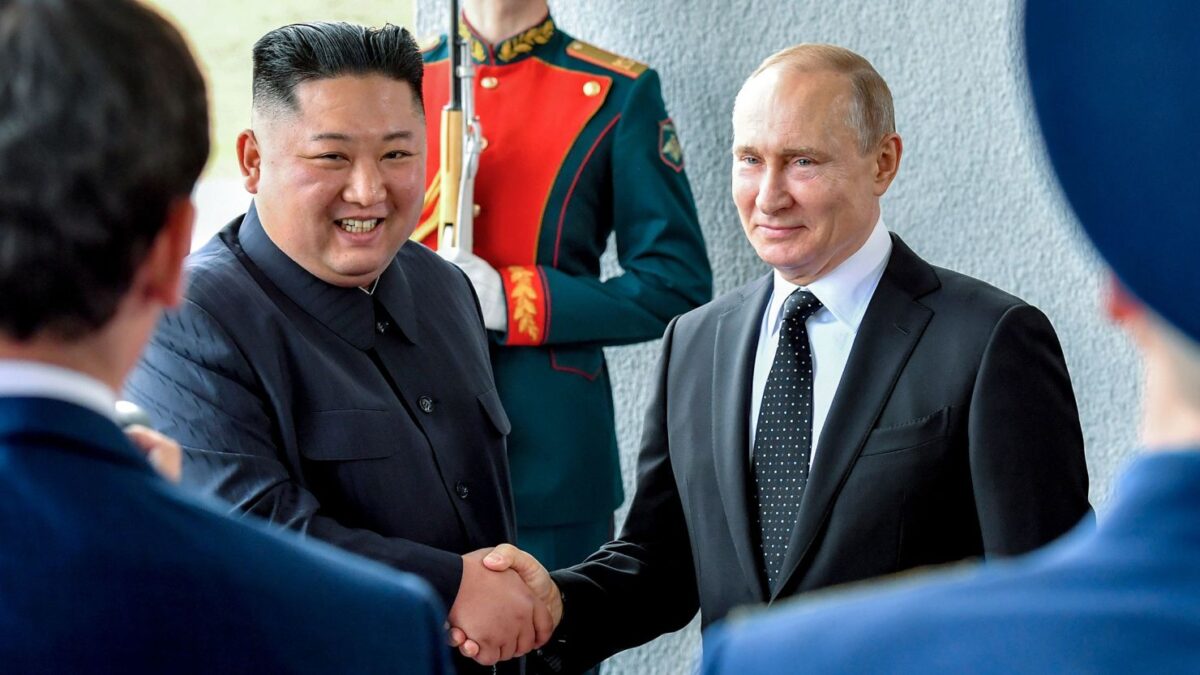On Thursday, June 20, the United States expressed grave concerns over Russian President Vladimir Putin’s recent statements suggesting that Russia might supply weapons to North Korea. This development follows the signing of a new defence pact between Russia and North Korea, heightening worries about regional security stability.
Table of Contents
Putin’s Comments and the Defense Agreement
President Vladimir Putin indicated that Russia could potentially arm North Korea as a countermeasure to Western countries providing arms to Ukraine. The defence pact, signed between Russia and North Korea, mandates that each nation will offer immediate military assistance if the other is attacked. Putin’s remarks have set off alarm bells in Western capitals.
During a news briefing, State Department spokesperson Matthew Miller emphasized the serious nature of the situation. “The idea of Russia supplying advanced weapons to North Korea is extremely troubling,” Miller said. “Such actions would likely destabilize the Korean Peninsula and might even breach U.N. Security Council resolutions that Russia has endorsed.”
Putin’s Warning to South Korea
During a visit to Vietnam, Putin also warned South Korea against supplying arms to Ukraine, describing it as a significant error. This warning followed a Yonhap news report suggesting that South Korea was considering sending weapons to Ukraine, adding another layer of complexity to the geopolitical landscape.
Response from the White House
The new defence pact between Russia and North Korea has particularly concerned Western officials. White House national security spokesperson John Kirby described the agreement as a troubling development and suggested that it underscores Russia’s growing desperation. “For months, we have been highlighting the increasing defence collaboration between Russia and North Korea, based on our intelligence,” Kirby said. “It is an issue we are taking very seriously.”
South Korea’s Diplomatic Measures
In response to these developments, South Korea summoned the Russian ambassador to Seoul on Friday to address the defence pact. The South Korean foreign ministry released a statement urging Russia to halt its military cooperation with North Korea and to adhere to U.N. Security Council resolutions. Ambassador Georgy Zinoviev was summoned just two days after the signing of the “comprehensive strategic partnership” agreement between Putin and North Korean leader Kim Jong-un.
Regional and Global Consequences
The potential supply of Russian weapons to North Korea has far-reaching implications for both regional and global security. Experts caution that such a move could spark an arms race on the Korean Peninsula, further destabilizing an already tense region. The possibility of advanced military technology reaching North Korea is especially concerning given Pyongyang’s ongoing missile tests and nuclear ambitions.
Additionally, the defence pact between Russia and North Korea marks a significant shift in the geopolitical landscape. This partnership, strengthening military ties against Western opposition, poses a challenge to international efforts to curb North Korea’s weapons programs and threatens the stability of East Asia.
International Sanctions and Legal Implications
Any transfer of weapons from Russia to North Korea would violate several U.N. Security Council resolutions prohibiting the sale or transfer of arms to Pyongyang. These resolutions aim to restrict North Korea’s ability to develop its missile and nuclear programs, which have been a persistent source of international tension.
Linda Thomas-Greenfield, the U.S. Ambassador to the United Nations, stressed that the United States would use all diplomatic channels to prevent the arms deal. “We will work with our partners at the U.N. and other international bodies to ensure that sanctions are enforced and that North Korea’s illegal weapons programs are stopped,” she stated.
Future Implications
This situation underscores the fragility of international security arrangements and the complexities of great power rivalries. Diplomatic efforts to address the North Korean issue have long faced significant challenges, and Russia’s involvement adds a new layer of complexity to this already intricate geopolitical puzzle.
Experts are divided on how best to resolve this crisis through diplomacy. Some believe that increased international pressure and sanctions could force Russia to reconsider its actions. Others argue that a more nuanced approach, involving dialogue and negotiation, might be necessary to address the underlying security concerns of all parties involved.
Conclusion
As global observers watch closely, the potential Russian arms supply to North Korea stands as a crucial test for international diplomacy and the effectiveness of global non-proliferation efforts. The next few weeks are likely to see intense diplomatic activity as the United States and its allies strive to prevent further escalation in East Asia. The stakes are high, and the outcome of this situation could have profound implications for regional and global security.

1 Comment
Pingback: Russia & North Korea Forge New Alliance Amid Ukraine Tension